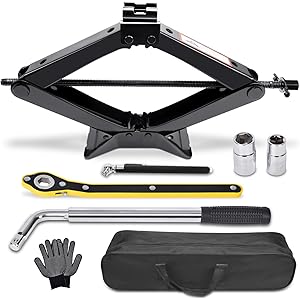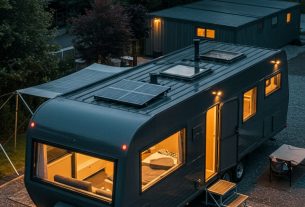As I navigated the complicated waters of homeownership, I stumbled upon the concept of manufactured homes. With rising housing prices and the persistent search for affordable living options, I found myself asking, “Is it a good idea to buy a manufactured home?” In this article, I will explore the pros and cons of manufactured homes, drawing on research, examples, and personal insights to help you make an informed decision.
Understanding Manufactured Homes
Manufactured homes, often referred to as mobile homes, are factory-built homes that are transported to their final location. Unlike traditional homes, which are built on-site, manufactured homes are constructed in a controlled environment, ensuring efficiency and affordability. As I learned, these homes are built to the standards set by the U.S. Department of Housing and Urban Development (HUD), which regulates their design and construction.
The Growing Popularity of Manufactured Homes
In recent years, the popularity of manufactured homes has surged. According to the Manufactured Housing Institute, approximately 22 million Americans live in manufactured homes. This statistic piqued my interest and led me to investigate why so many people are choosing this alternative housing option.
Affordability: A Key Factor
One of the primary reasons people opt for manufactured homes is affordability. The average cost of a manufactured home is significantly lower than that of a site-built home. In fact, according to the U.S. Census Bureau, the average price of a manufactured home was about $85,000 in 2020, while the median price of a single-family site-built home was over $350,000. This stark contrast in price made me consider the potential savings.
Customization Options
Another appealing aspect of manufactured homes is their customization options. Many manufacturers offer a variety of floor plans and design choices, allowing buyers to personalize their homes to fit their needs. I found it fascinating that some manufacturers even allow homeowners to choose eco-friendly materials and energy-efficient features, which can lead to long-term savings on utility bills.
Pros of Buying a Manufactured Home
After conducting thorough research and reflecting on the benefits, I compiled a list of pros that stand out when considering the purchase of a manufactured home:
- Affordability: As mentioned earlier, manufactured homes are generally much cheaper than traditional homes, making them an attractive option for first-time buyers and those on a tight budget.
- Quick Construction: The construction of manufactured homes typically takes less time than traditional homes. This rapid build time can be a game-changer for buyers eager to move in.
- Lower Maintenance Costs: Many manufactured homes come with warranties and are built with modern materials, which can lead to lower maintenance costs over time.
- Community Living: Many manufactured home parks offer a sense of community and shared amenities, such as pools and recreational facilities, which can enhance the living experience.
- Energy Efficiency: With advancements in technology, many manufactured homes are built with energy-efficient materials and systems, leading to reduced energy costs.
Cons of Buying a Manufactured Home
While there are numerous benefits to buying a manufactured home, it’s essential to consider the potential drawbacks. Here are some cons that I discovered during my research:
- Depreciation: Unlike traditional homes that often appreciate in value, manufactured homes can depreciate over time, making them a less stable investment.
- Financing Challenges: Obtaining financing for a manufactured home can be more complicated than for a traditional home. Many lenders may require a higher down payment or charge higher interest rates.
- Limited Land Ownership: In many cases, manufactured homes are placed in parks or communities where land ownership is not included, which can limit long-term investment potential.
- Zoning Restrictions: Some areas have strict zoning laws that can make it difficult to place a manufactured home on a desired piece of land.
- Perceptions and Stigma: There is still a lingering stigma associated with manufactured homes, which can affect resale value and the homeowner’s pride in ownership.
Real-Life Case Studies: Experiences with Manufactured Homes
To deepen my understanding, I reached out to a few individuals who have experience with manufactured homes. Their stories provided valuable insights that helped me weigh the pros and cons further.
Case Study 1: The Smith Family
The Smith family purchased a manufactured home to escape rising rents in their urban area. They found a community that offered amenities and a supportive environment. While they appreciated the affordability, they encountered challenges with financing, requiring them to save for a larger down payment.
Case Study 2: Anna and Mark
Anna and Mark decided to invest in a manufactured home as a temporary solution while they saved for a traditional home. They appreciated the lower maintenance costs and energy efficiency. However, they experienced some frustration with zoning restrictions that limited where they could place their home.
Case Study 3: The Johnsons
The Johnsons purchased a manufactured home for their retirement. They enjoyed the community lifestyle and the affordability, allowing them to travel more. However, they noted that the resale value wasn’t as high as they had hoped when they decided to downsize.
Financial Considerations When Buying a Manufactured Home
Understanding the financial implications of buying a manufactured home is crucial. Here are some key financial considerations to keep in mind:
Cost of Purchase
The initial cost of a manufactured home is often lower than that of a conventional home. However, it’s essential to factor in additional costs that may arise, such as:
- Land Purchase or Rent: If you’re buying land, consider the costs associated with it. If you’re renting, factor in monthly lot fees.
- Utilities and Maintenance: Ensure you budget for utilities, maintenance, and potential repairs.
- Insurance: Manufactured homes may require different types of insurance compared to traditional homes, so check with your provider.
Financing Options
When it comes to financing a manufactured home, here are some options to explore:
- Chattel Loans: These loans are secured by the home itself rather than the land, which may have higher interest rates.
- FHA Loans: Federal Housing Administration loans can be used for manufactured homes, especially if they are permanently affixed to a foundation.
- Conventional Loans: Some lenders offer conventional loans for manufactured homes, but terms can vary significantly.
Tips for Buying a Manufactured Home
If you’re considering purchasing a manufactured home, here are some tips to guide you through the process:
- Do Your Research: Investigate different manufacturers, models, and communities to find the best fit for your needs.
- Check Regulations: Be aware of local zoning laws and regulations that could impact where you can place your home.
- Inspect the Home: Always arrange for a thorough inspection before making a purchase to identify potential issues.
- Consider Resale Value: Think about the long-term implications of depreciation and how it may affect your investment.
- Connect with Current Owners: Speak with current manufactured home owners to gain insights into their experiences and any challenges they faced.
Conclusion: Is Buying a Manufactured Home Right for You?
As I reflect on my research and the stories I’ve encountered, I realize that the decision to buy a manufactured home is not one-size-fits-all. The affordability and customization options can be incredibly appealing, especially for first-time buyers and those seeking to downsize. However, the potential for depreciation and financing challenges must also be carefully considered.
Ultimately, it boils down to your personal circumstances, financial situation, and long-term goals. If you value community living and affordability, a manufactured home could be a perfect fit. Yet, if long-term investment and property appreciation are your priorities, you may want to weigh your options more carefully.
FAQs
What is the average lifespan of a manufactured home?
Manufactured homes can last 30 years or more with proper maintenance, but longevity can vary based on materials and upkeep.
Can I finance a manufactured home like a traditional home?
Yes, but financing can be more complicated. Options include chattel loans and FHA loans, depending on whether the home is affixed to land.
Are manufactured homes considered real estate?
Manufactured homes can be classified as real estate if they are permanently affixed to land that you own or lease.
What are the property taxes like for manufactured homes?
Property taxes for manufactured homes can vary widely based on location and whether the home is classified as personal property or real estate.
If you found this article helpful, I encourage you to sign up for our newsletter for more insights and tips on homeownership. Please share this article with friends and on social media to help others make informed decisions about manufactured homes!
Scissor Car Jack 3 Ton (6610 lbs) Tire Changing Kit with Lug Wrench - Emergency Kit for Car, SUV, MPV
$37.83 (as of November 15, 2025 07:52 GMT -03:00 - More infoProduct prices and availability are accurate as of the date/time indicated and are subject to change. Any price and availability information displayed on [relevant Amazon Site(s), as applicable] at the time of purchase will apply to the purchase of this product.)
Sign up for our newsletter and stay up to date with exclusive news
that can transform your routine!





